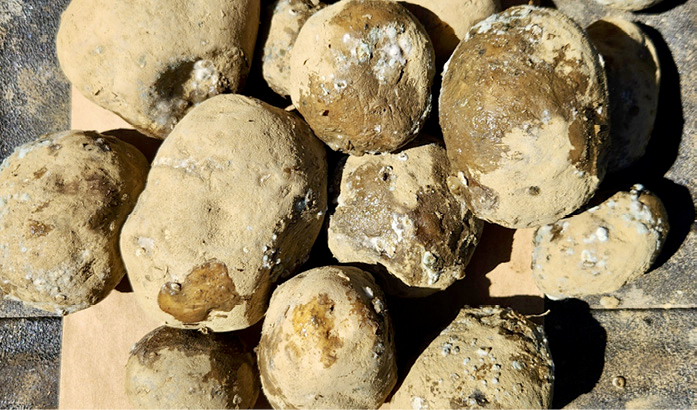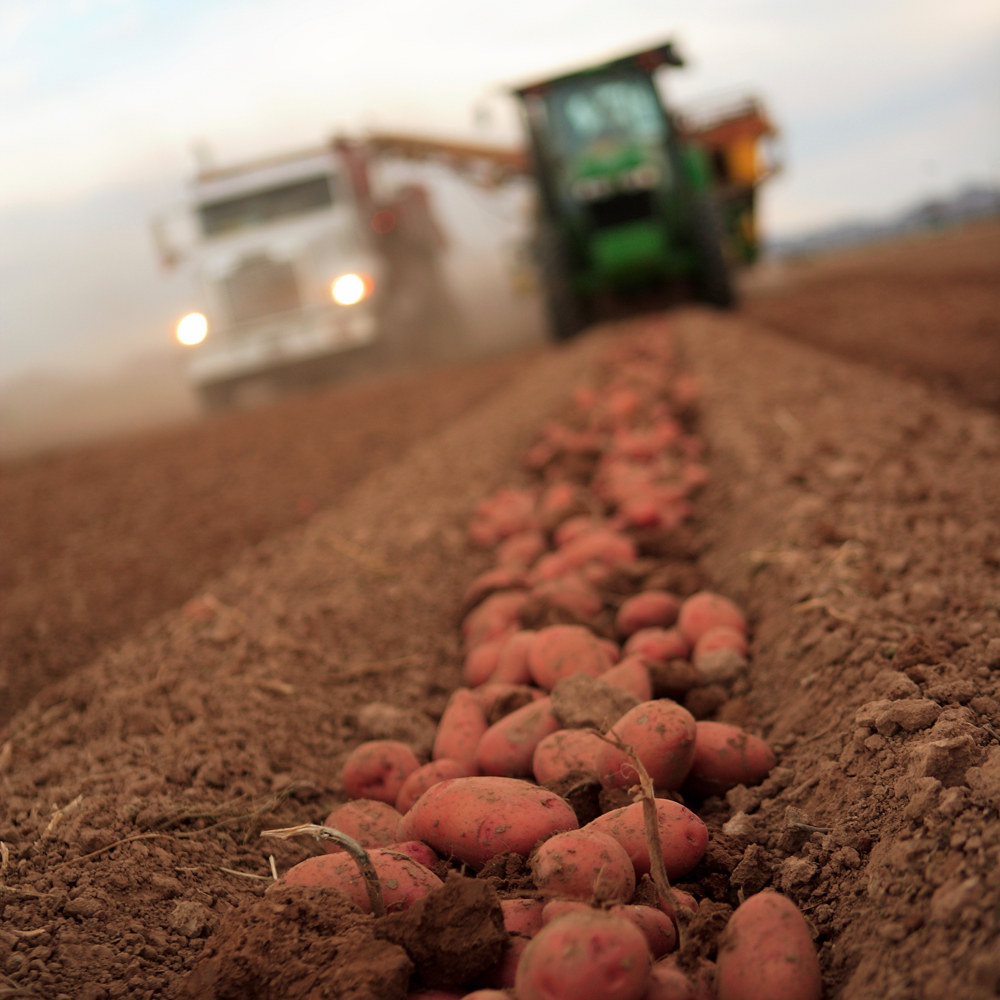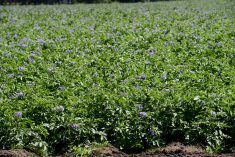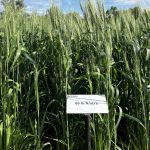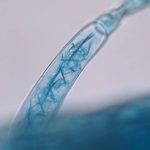A provincial survey aims to establish a baseline of data on bacterial soft rots in potato storage and blackleg in fields during the 2024 growing season.
The two diseases are common yet the bacterial species responsible are becoming more aggressive, particularly with the Dickeya genus, one of the newer species responsible for blackleg and soft rots. Historically, species from the Pectobacterium genus were the primary cause of soft rot symptoms in storages and fields and even in the bottom of refrigerators.
The survey was initiated by the Ontario Ministry of Agriculture, Food and Rural Affairs to test types of soft rot bacteria that affect Ontario potatoes.
Read Also
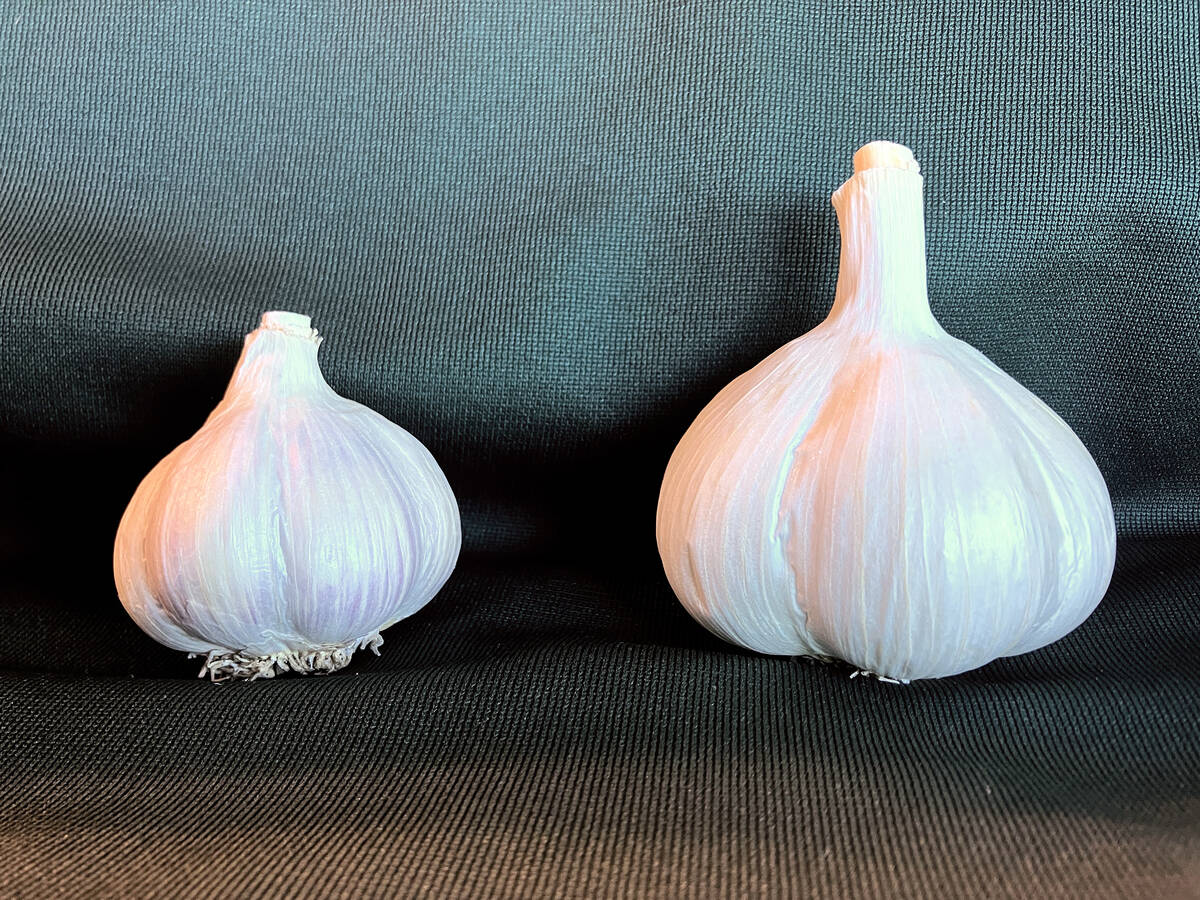
Clean seed garlic promises bigger bulbs and higher returns for growers
Ontario garlic trials show clean seed outshines conventional yields, with stronger drought resilience, reduced virus risk and greater economic outcomes.
Dennis Van Dyk, vegetable crop specialist with OMAFRA, says the survey aims to identify specific bacteria species so incidence and damage from soft rots in storage and blackleg in fields can be limited.
He wants to avoid the scenario when Dickeya dianthicola emerged seven or eight years ago, causing major losses in some regions. The more recent introduction of Dickeya has captured the attention of agronomists, advisors and growers.
“When we began looking more at soft rots, we also started finding different species of Pectobacterium, some of which — like Pectobacterium parmentieri — are better at rotting tubers,” says Van Dyk .
“So now if that species shows up on seed, are there more losses in storage? We’re looking to see how the species diversity has changed for Ontario.”
Since 2017, potato researchers in the U.S. have been running a survey like the one OMAFRA is introducing this year. Although the Ontario survey will run throughout the growing season, Van Dyk hopes for an early start.
“We’d like to get a good representation of the seed lots coming in. Ontario still imports a lot of potato seed from other regions, although our Ontario seed industry is growing every year. It’s not that we want to point fingers, but what different species are we finding coming from our various sources of seed?”
That process is easiest before planting, when growers know their lots and are holding their own seed. After initial results come back — and if they have any unique species — the plan is to follow some lots through the season to determine the corresponding disease symptoms in the field and storage.
No specific region is targeted. The survey is about benchmarking the bacteria involved.
“If you’re seeing field symptoms with seed rots, wilting and blackleg, and sometimes these losses can be up to 40 per cent, then we definitely want to hear from you,” says Van Dyk.
“I’m interested in seeing the prevalence of Dickeya, because it’s a newer genus and the threat of in-field losses is higher. It’s more aggressive at higher temperatures and you can get some really heavy in-field losses.”
Samples can be submitted of soft rot in received seed, last year’s storage or blackleg symptoms. Testing is free, including pick-up. Van Dyk stresses that survey results will be confidential.
For more information or to submit samples, contact Dennis Van Dyk at 519-766-5337 or via email at [email protected].




